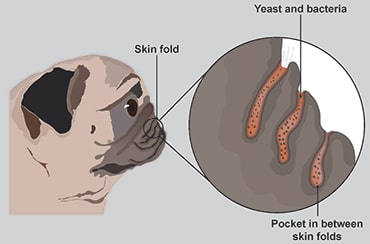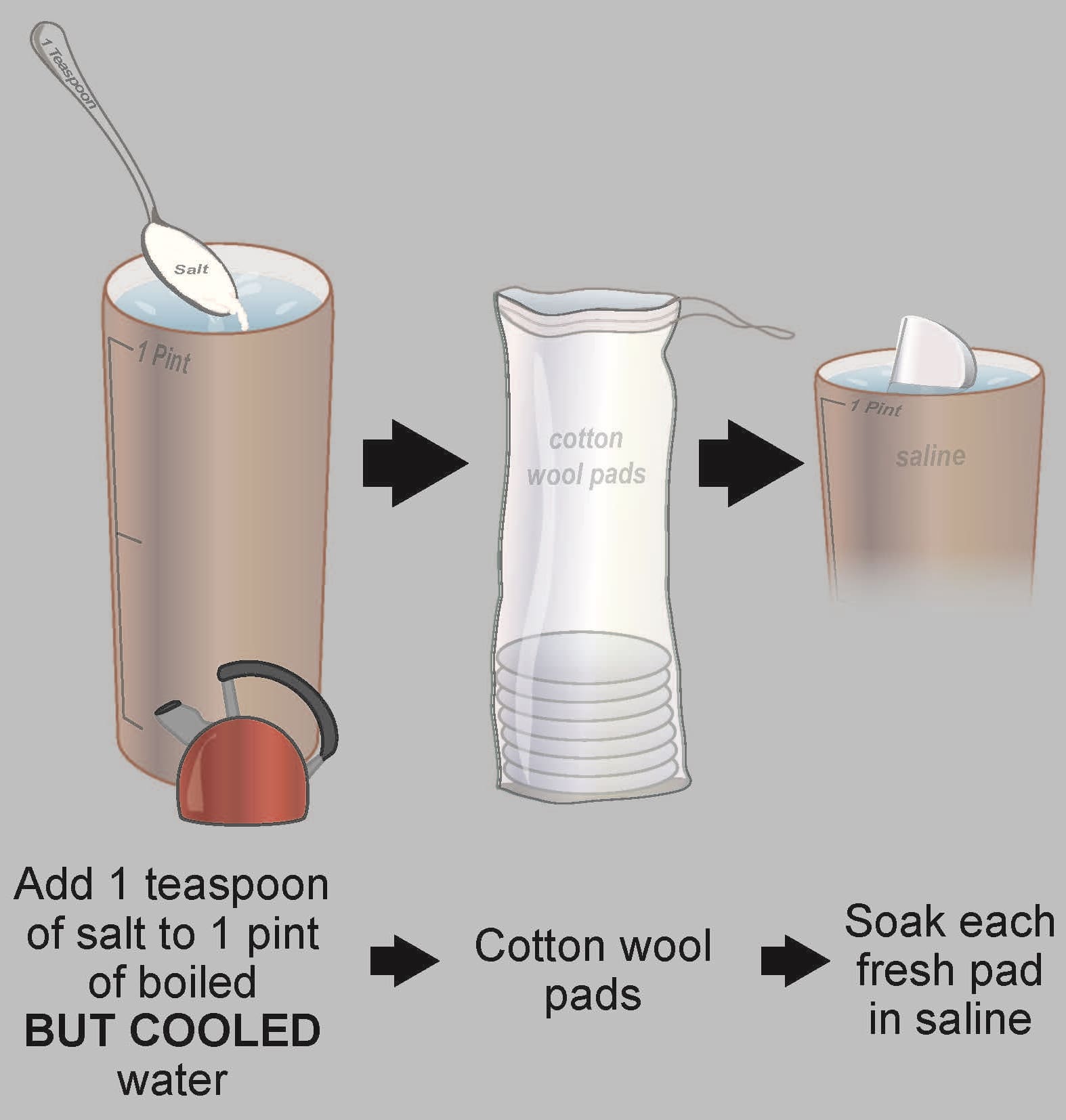Skin fold dermatitis in dogs
Overview
- Skin fold dermatitis is an infection in a pocket between two folds of skin.
- Skin fold pockets are warm and moist, providing a perfect place for bacteria and yeast to grow.
- Skin fold dermatitis is common in overweight dogs, dogs with wrinkly skin and dogs with short noses.
- The first sign of skin fold dermatitis tends to be smell and red skin between the folds.
- Prevent skin fold dermatitis by regularly cleaning and drying in between your dog’s skin folds.
- Contact your vet if you notice your dog has skin problems.
General information
Yeast and bacteria live naturally on your dog’s skin but, only cause a problem if they overgrow. Pockets in between skin folds provide a perfect environment for bacteria and yeast to grow, and for infections to develop. Skin fold dermatitis is most common in skin folds above the nose, tail and vulva.
Dogs with skin folds require lifetime care from their owners to keep their skin healthy.
Skin fold dermatitis is common in:
- Overweight animals (that develop skin folds due to their weight)
- Short nosed dogs with fold above their noses such as the British Bulldog, Pug, and French Bulldog
- Dogs with wrinkly skin such as the Shar Pei.

Skin fold dermatitis is common in flat-faced breeds
Symptoms of skin fold dermatitis
- Smelly skin
- Scratching, rubbing, licking or biting
- Red, sore skin folds
- Yellow or white discharge inside skin folds
- Pain when skin folds are cleaned or moved.
When to contact your vet
Contact your vet if you think your dog has a skin fold infection. Infected skin can cause a lot of discomfort and left untreated, can cause much more serious problems. Consider insuring your dog as soon as you get them, before any signs of illness start. This will ensure you have all the support you need to care for them.
Treatment
Treating skin fold dermatitis involves regular cleaning, reducing inflammation and sometimes antibiotics/anti-yeast treatment.
Cleaning
- It's very important to keep infected skin folds clean and dry.
- Your vet may prescribe your dog a special anti-microbial shampoo, or ask you to use salt water (see illustration below). It's important to clean each skin fold pocket thoroughly.
- It is very important to stop your dog (and other pets) licking or scratching infected skin. It may be necessary to use a buster collar to stop them licking or scratching. You can purchase these yourself at your vets, a pet shop or online.
Reducing inflammation
- Cleaning alone can sometimes be enough to allow skin to heal, but if necessary, your vet may prescribe an anti-inflammatory medication (usually steroids). This could be a tablet, spray or a cream.
Antibiotics/anti-yeast
- Antibiotics tablets/cream may be necessary if your dog’s infection is bacterial.
- Antibiotics won’t be necessary if your dog’s skin infection is caused by yeasts, instead your vet may prescribe an antifungal shampoo/cream.

Use fresh cotton wool pads and saline to clean infected skin pockets

The shape of a dog's face and skin can make them more prone to skin fold dermatitis
Published: June 2020
Did you find this page useful?
Tell us more
Please note, our vets and nurses are unable to respond to questions via this form. If you are concerned about your pet’s health, please contact your vet directly.
Thank you for your feedback
Want to hear more about PDSA and get pet care tips from our vet experts?
Sign up to our e-newsletter
Written by vets and vet nurses. This advice is for UK pets only. Illustrations by Samantha Elmhurst.

